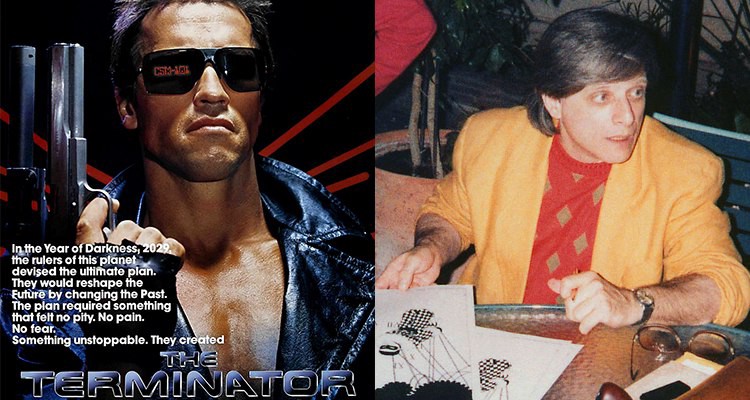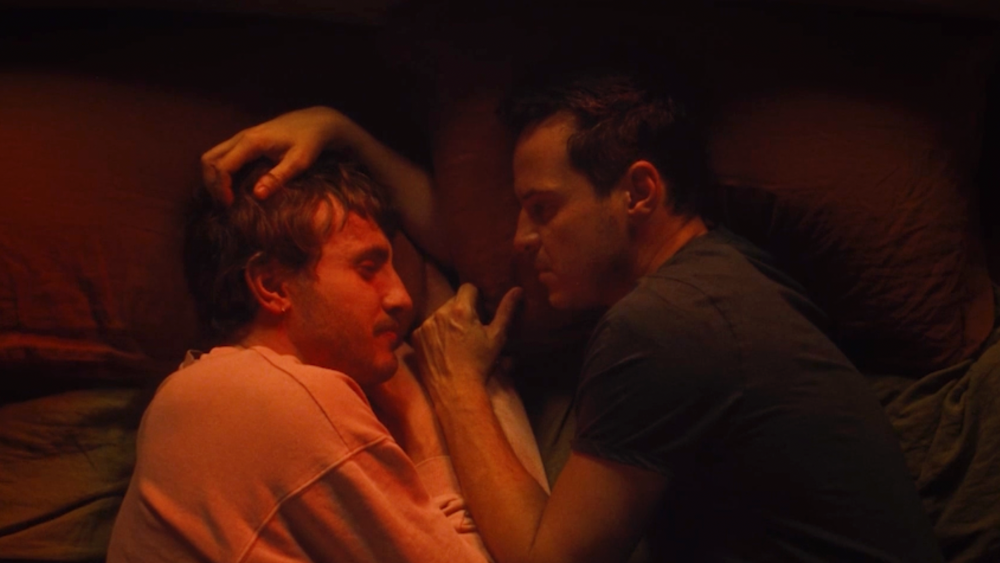Books & Culture
Was 1984’s The Terminator a Harlan Ellison Rip-Off?

In what can either be seen as calculated nostalgia or a desperate attempt at relevancy, old Arnold Schwarzenegger is all set to duke it out with young Arnold Schwarzenegger this weekend in Terminator: Genisys. Both time-travel and robot duplicates allow science fiction to rip itself off occasionally, but was The Terminator’s inception a rip-off, too?Depends on who you ask!
Understanding the old Terminator controversy requires a brief primer on one of the most talented and most prolific authors in the fields of various genre fiction: Harlan Ellison. He’s written for TV and film, but is probably most loved for his short stories, most of which read like little science fiction gut-punches. Most famously, Ellison wrote a bleak dystopian story called “‘Repent Harlequin’ Said the Tick-Tock Man” which shows up on pretty much every single “best sci-fi stories ever” list you can dream up. Robin Williams even did an audio version of it. Also notably, Ellison wrote perhaps the most famous (and best) episode of the original Star Trek; “City on the Edge of Forever.”
And yet, for all of his talent and accolades, Ellison is, arguably, equally well-known for his litigious trigger-finger. And if you’re watching the original Terminator this week to get yourself psyched for Terminator: Genisys, you might notice something funny about the final scene of the film when Linda Hamliton’s Sarah Connor drives off into the desert. Up on the screen, before any other credits, are the words “Acknowledgment to the works of Harlan Ellison.” This is not a direct credit explaining that what you’ve just seen was adapted from one of Ellison’s stories or scripts; instead, the film uses the weird state-of-being verb “acknowledgement.” So what gives?
The story goes like this: in or around 1984 someone tells Harlan Ellison that they think the script for The Terminator sounds similar to his script for an Outer Limits episode called “Soldier,” which Ellison had actually adapted from his own short story, “Soldier Out of Time.” And when we say “similar” we mean that the opening sequences of both The Terminator and “Soldier” are aesthetically close enough to give you pause. Both deal with a guy from the future who ends up on some contemporary 20th century streets. In Terminator, this is Reese; in “Soldier,” a guy named Qarlo. What happened next (according to Ellison almost exclusively) was that the production company in question — Hemdale — started avoiding Ellison’s inquires to see a script. Eventually, after sneaking into an advance screening of the film, Ellison determined that there were enough elements of Terminator similar to both “Solider” and to another Outer Limits he wrote, “Demon With a Glass Hand,” to make a case against Terminator director James Cameron and Hemdale Studios.
Most damning, though, was a quote from James Cameron — which was supposed to have appeared in a magazine called Starlog — in which the director gave an interview about The Terminator ahead of its release. When asked where he got the idea from, he said: “I ripped off a few Outer Limits segments.” This sentiment was apparently repeated when a friend of Ellison’s visited the set of the film and Cameron said that he’d “ripped off a few of Ellison’s short stories” to make the script for Terminator. Now, the quote above is NOT in the final interview (I have the physical issue, plus you can read it here), because purportedly, the editors of Starlog were asked (forced?) by one of James Cameron’s assistants to alter the piece before it went to print. Still, it’s widely acknowledged that the studio paid Ellison something in the range of 65,000 as a settlement.
This controversy can be quickly “explained” by watching the video at this link. Other than one or two blog posts (here and here), this is pretty much the only documentation you can find online, or at least the only one that anyone cites. The funny thing about this video is that it seems spliced together by a fan using footage taken from an old Canadian sci-fi commentary show. I’m not dismissing the validity of the information in the video (at all), but there is a tone to it that has a familiar conspiracy-theory vibe in which people with the “real story” are gleefully sticking it to the man. Personally, I’m more on Ellison’s side (full disclosure, I’ve interviewed him twice) but there’s still something about this dust-up that’s strangely compelling. Mostly, because it’s not and and dried. Ellison certainly didn’t own the simple idea of time-traveling soldiers, and if we think about art as appropriation for just a second in a David Shields kind-of-way, it seems like Terminator couldn’t possibly be a rip-off of these two scripts, or of one short story. Even by Ellison’s own admission, the problem wasn’t the intellectual property, but rather the hubris.
“He could have had it for free,” Ellison says, “if he’d asked me.” Whether this is true or not isn’t super relevant because we can’t visit that alternate dimension. But it does give one pause on all sides of the issue. Say you’ve written a classic short story, one which you think is awesome, and it gets published somewhere notable, and then twenty years later, Rian Johnson or J.J. Abrams is making a big budget movie which contains an opening scene similar to your short story. You’d probably be pissed.
At the same time, if you were James Cameron, why wouldn’t you have asked? Or perhaps all the smoking guns of Cameron saying the word “rip-off” were meant flippantly and he didn’t even know what he was using as source material. Indeed, in the printed Starlog interview, Cameron gushes about having read a ton of sci-fi when he was a kid and that making The Terminator allowed him to come back to sci-fi. It’s very possible Cameron didn’t have an encyclopedic knowledge of all the stuff he’d read when he and Gale Ann Hurd wrote The Terminator. Recently, when I interviewed Alex Garland about another robot movie — Ex Machina — I could distinctly tell that he wasn’t totally sure which specific old-school robot books were his favorites. But I did get the sense that they had seeped into the creative primordial soup from where his movie ideas came from.
Maybe something similar happened with Cameron. Maybe he wasn’t aware of what he was homaging and then when he started running his mouth, things got tricky. (In the printed interview Cameron describes coming up with The Terminator as a “fever dream.”) Or maybe (as the evidence available suggests) Ellison caught someone red-cyborg-handed trying to pass off aspects of his work as theirs. Meanwhile, it seems like neither of them can cop to whose idea it was to have time travel be something you do naked, nor if the phrase “I’ll be back,” will ever slip into the public domain.
So, when the credits roll on the new Terminator film this week, let’s all be on the look-out for the name of a favorite short story writer or two, while at the same time imagining armies of time-traveling writers spying on film directors for clues of flagrant or accidental ripping-off.








